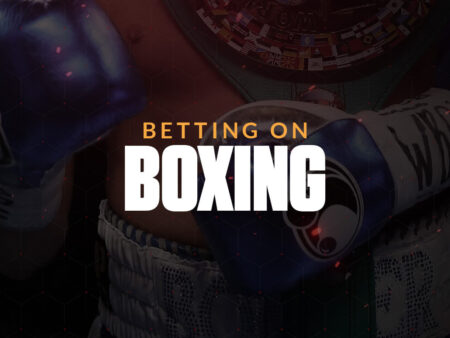Understanding the concept of ROI, or Return on Investment, is crucial for anyone engaged in betting.
Maximize Your ROI in Sports Betting: Expert Tips
Contents
Introduction
Understanding the concept of ROI, or Return on Investment, is crucial for anyone engaged in sports betting. ROI in sports betting is a metric that helps bettors evaluate the efficiency of their bets relative to their initial investment. By comprehending what does ROI mean in betting, you can make more informed decisions that enhance your overall profitability. This introductory section will delve into the basics of how to calculate ROI in betting, its significance, and why focusing on sports betting ROI can significantly improve your betting outcomes.
Understanding ROI in Sports Betting
ROI, or Return on Investment, is a crucial metric in sports betting. The ROI meaning refers to the percentage of profit you make from your betting activities compared to the amount you have wagered. Calculating ROI helps bettors understand the profitability and efficiency of their strategies over time.
Here’s a simple formula for calculating ROI:
ROI = (Profit / Total Amount Wagered) x 100
This calculation can be easily performed using an roi calculator, ensuring accuracy and saving time.
When comparing sports betting yield vs ROI, the difference lies primarily in their focus. Yield measures the profit relative to the total stake and is usually expressed as a percentage. ROI, on the other hand, considers the profit relative to the amount invested, providing a broader perspective on overall performance.
So, what is a good roi for sports betting? Generally, a consistent ROI of 5-10% is considered excellent in sports betting. Achieving such figures indicates a well-honed strategy and disciplined bankroll management.
Below is a comparison of ROI and Yield in a typical betting scenario:
| Parameter | ROI | Yield |
|---|---|---|
| Formula | (Profit / Total Wagered) x 100 | (Profit / Total Stake) x 100 |
| Application | Overall investment return | Efficiency on individual stakes |
| Ideal Benchmark | 5-10% (Consistent) | Depends on individual bet |
Understanding the nuances between ROI and yield, and knowing how to calculate them, equips sports bettors with essential insights to maximize their earnings and refine their betting practices.
Bankroll Management Strategies
Bankroll management is a cornerstone of any successful sports betting strategy. It involves setting aside a specific amount of money exclusively for betting purposes. This approach helps both professional and amateur bettors to maintain control over their finances and avoid the pitfalls of impulsive betting.
Effective bankroll management can be broken down into several critical strategies:
- Determine the Size of Your Bankroll: Assess your disposable income to establish how much money you can comfortably allocate to your betting fund. This amount should not interfere with your essential financial obligations or daily expenses.
- Set Betting Limits: Decide what percentage of your bankroll you will stake on each bet. Common recommendations suggest wagering no more than 1-2% of your total bankroll on a single bet, which minimizes the risk of significant losses.
- Utilize Bonuses and Promotions: Take advantage of sportsbook bonuses and promotions to increase your bankroll without additional financial investment. These offers can provide extra funds for betting, thus extending the life and potential of your bankroll.
The systematic approach to bet management ensures that emotions do not cloud judgment, promoting a more analytical and disciplined betting style. This structured method not only helps in preserving the bankroll but also enhances the overall sports betting strategy by fostering consistent and calculated betting practices.
To provide a clearer understanding, the following table illustrates different bankroll sizes and respective betting limits:
| Bankroll Size | 1% Bet Amount | 2% Bet Amount | Recommended Betting Strategy |
|---|---|---|---|
| $500 | $5 | $10 | Stay within 1-2% bets to minimize risk. |
| $1,000 | $10 | $20 | Leverage bonus offers for added value. |
| $5,000 | $50 | $100 | Use promotions and limit total exposure. |
By adhering to these bankroll management practices, bettors can optimize their betting funds, ensure longevity in their betting endeavors, and develop a more sustainable and responsible betting habit.
Building a Successful Betting Model
Developing a robust sports betting model is a key to enhancing sports wagering performance. To start, it’s essential to carefully select the sports and markets you wish to engage in. Popular sports like football, basketball, and baseball provide ample data, which is crucial for creating accurate models.
Equally important is choosing the right software. Tools like Microsoft Excel, R, and Python provide strong platforms for building and refining betting algorithms. These tools help you analyze vast amounts of data efficiently and accurately.
A fundamental concept in any sports betting model is expected value (+EV). Identifying bets with a positive expected value is vital in ensuring long-term profitability. By consistently placing +EV bets, you can enhance your sports wagering performance and stay ahead of the market.
Respecting market efficiency is another crucial aspect. Market odds frequently reflect collective public wisdom and expert insights. Therefore, a successful sports betting model must account for these odds to find genuine value opportunities.
Backtesting helps validate the effectiveness of your sports betting model. This process involves running your model against historical data to see how well it predicts outcomes. It helps in identifying any adjustments needed to improve forecasting accuracy.
- Select sports and markets with abundant data.
- Use software like Excel, R, or Python for building betting algorithms.
- Focus on identifying +EV bets.
- Integrate market efficiency into your model.
- Backtest your model against historical data.
Lastly, there are two distinct approaches within sports betting models: projections-based and market-based. Projections-based methods rely on statistical models to predict outcomes, while market-based strategies analyze the odds set by bookmakers to identify discrepancies.
A thorough understanding of both approaches can help in building a sports betting model that boosts your sports wagering performance. Here is a comparative table that outlines the key distinctions between projections-based and market-based betting approaches:
| Approach | Basis | Data Usage | Advantages | Challenges |
|---|---|---|---|---|
| Projections-Based | Statistical Models | Historical Performance Data | Predictive Power, Customizability | Resource-Intensive, Model Maintenance |
| Market-Based | Bookmakers’ Odds | Market Movements | Quick Analysis, Practical Insights | Dependence on Market Efficiency |
In summary, a well-structured sports betting model, enriched with sound betting algorithms, can significantly enhance your sports wagering performance, steering you toward long-term success.
Tips for Maximizing ROI in Sports Betting
Maximizing ROI in sports betting requires a disciplined and strategic approach. First and foremost, understanding the importance of a disciplined betting process can significantly impact your profitability. Adhering to a strict betting plan ensures that emotions do not dictate your wagers, which is critical for long-term success.
One effective strategy is the implementation of different bet sizing systems. The Kelly Criterion and units system are two popular methodologies. The Kelly Criterion helps in determining the optimal size of a bet, while the units system allows you to wager a predetermined percentage of your bankroll, thus maintaining consistency and mitigating losses.
Identifying and removing biases in your betting process is crucial. Personal inclinations can cloud judgment and lead to poor decision-making. Analyzing data objectively and making data-driven decisions helps in eliminating these biases, thus leading to more accurate predictions.
Tracking your betting results cannot be overstated. Documenting each bet brings transparency and accountability to your betting activities. This practice also allows for a thorough analysis of past wagers, helping you to identify patterns and areas for improvement.
Here are some key points to consider:
- Adopt a disciplined betting process for consistent results.
- Utilize bet sizing systems like the Kelly Criterion and units.
- Remove biases by relying on data-driven decisions.
- Keep a detailed record of your betting outcomes.
Integrating these tips into your sports betting strategy can play a pivotal role in maximizing ROI and improving overall performance.
| Strategy | Description | Benefits |
|---|---|---|
| Disciplined Betting Process | Following a strict betting plan | Ensures consistent and logical wagers |
| Kelly Criterion | Optimal bet size calculation | Maximizes potential gains, minimizes losses |
| Units System | Wagering a set percentage of bankroll | Maintains consistency in bet sizes |
| Data-Driven Decisions | Objectively analyzing data to make bets | Eliminates personal biases |
| Result Tracking | Documenting each bet outcome | Enhances accountability and transparency |
Conclusion
In conclusion, maximizing your ROI in sports betting demands a thorough understanding and application of the principles discussed in this article. By focusing on bankroll management strategies, you can significantly enhance your betting ROI. A disciplined approach to betting ensures that your funds are distributed wisely and used effectively.
The insights provided into building a successful betting model emphasize the importance of using data-driven strategies. Employing well-researched sports betting strategies tailored to your analysis can lead to more calculated and potentially lucrative outcomes. Always remember, each bet should be viewed as a strategic investment in sports betting, requiring the same level of attention and analysis as traditional investments.
Finally, the expert sports betting tips discussed throughout this article are designed to equip you with the knowledge needed to make informed decisions. By refining your approach and integrating these strategies into your routine, you’ll be well on your way to optimizing your return on investment in sports betting. Stay disciplined, make educated decisions, and continually evaluate and adjust your methodologies for sustained success.
- A Guide to Gambling Self-Exclusion in Canada - July 29, 2024
- Maximize Your ROI in Sports Betting: Expert Tips - July 16, 2024
- How to Make the Most of Canadian Bets: A Comprehensive Guide - June 18, 2024




